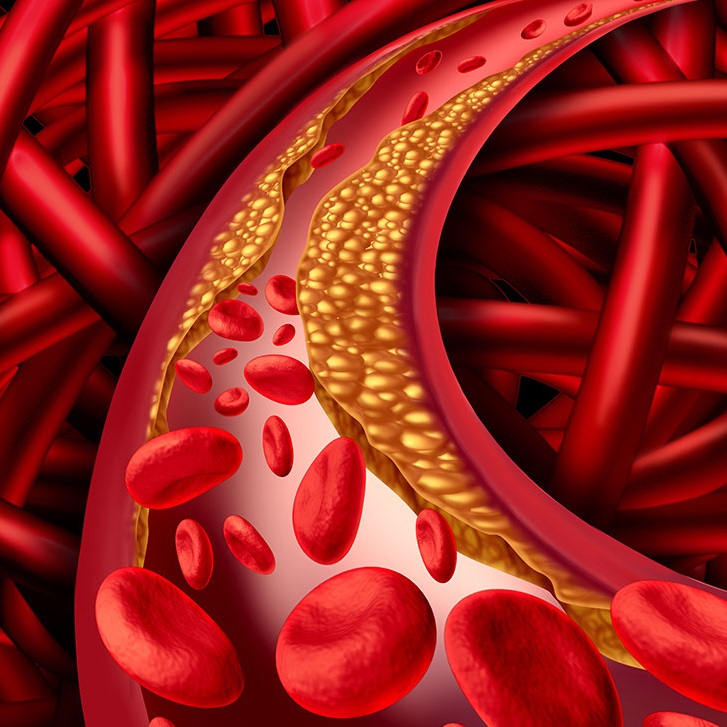High cholesterol, particularly elevated levels of low-density lipoprotein (LDL) cholesterol, can have serious negative effects on the body. Here are some of the primary ways high cholesterol can impact health:
Cardiovascular System
- Atherosclerosis
- Plaque Buildup: High LDL cholesterol can lead to the buildup of plaques in the arteries. These plaques are made up of fat, cholesterol, and other substances, causing the arteries to harden and narrow.
- Coronary Artery Disease (CAD)
- Heart Attack Risk: Plaque buildup in the coronary arteries can reduce blood flow to the heart muscle, increasing the risk of a heart attack.
- Peripheral Artery Disease (PAD)
- Reduced Blood Flow: Narrowed arteries can decrease blood flow to the limbs, particularly the legs, causing pain and increasing the risk of infections and poor wound healing.
- Stroke
- Blocked Arteries: If plaques rupture, they can form blood clots that block arteries leading to the brain, resulting in a stroke.
Metabolic and Endocrine Systems
- Diabetes Complications
- Increased Risk: High cholesterol is often associated with other metabolic disorders like diabetes, and it can exacerbate complications such as heart disease.
Digestive System
- Gallstones
- Gallbladder Issues: Excess cholesterol can lead to the formation of gallstones, which can cause pain and digestive problems.
Impact on Organs
- Kidneys
- Kidney Disease: Atherosclerosis can affect the arteries leading to the kidneys, reducing their function and potentially leading to kidney disease or failure.
Overall Health
- Hypertension (High Blood Pressure)
- Increased Blood Pressure: Narrowed arteries require the heart to pump harder to move blood through the body, which can increase blood pressure.
- Chronic Inflammation
- Inflammatory Response: The presence of plaques can trigger chronic inflammation, which is a risk factor for many chronic diseases.
Preventive Measures and Management
Managing high cholesterol involves lifestyle changes, medication, and regular monitoring. Key strategies include:
- Healthy Diet: Adopting a diet low in saturated fats and trans fats, and high in fruits, vegetables, whole grains, and healthy fats such as those found in nuts and fish.
- Regular Exercise: Engaging in at least 150 minutes of moderate-intensity exercise per week can help raise high-density lipoprotein (HDL) cholesterol and lower LDL cholesterol.
- Weight Management: Maintaining a healthy weight can improve cholesterol levels and overall cardiovascular health.
- Avoiding Tobacco Smoke: Quitting smoking can improve HDL cholesterol levels and overall heart health.
- Moderating Alcohol Intake: Limiting alcohol consumption can help manage cholesterol levels and reduce the risk of cardiovascular disease.
- Medication: In some cases, lifestyle changes alone may not be enough, and medications such as statins may be prescribed to help lower cholesterol levels.
Regular health check-ups and cholesterol screenings are important for early detection and management of high cholesterol, reducing the risk of serious health complications.
